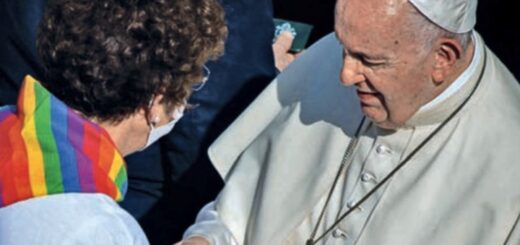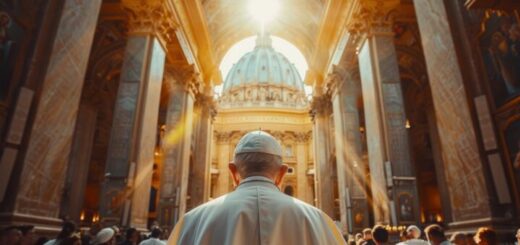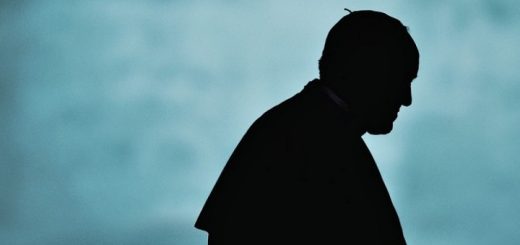With "Without Mulini" by Elisa Belotti to find out how to live Christianity in the world
Dialogue of Katya Parente with Elisa Belotti
It is not the first time that Elisa Belotti is our guest. We met her on the occasion of the release of her "Nothing to cure“. Today he will talk to us about his new adventure, "Without mills".
What is "without mills" and why this title?
"Without mills”It is a newsletter published on the Substack platform. It is a project that started in January 2025 to find out how to live Christianity around the world. Through interviews and insights, we investigate, without confessional approach, as Christianity has impacted and impacts on society in different areas of the globe.
The title derives from a conversation with a friend. Speaking of fatigue and commitment to be a different church, she used this image: “Let's not think, in reflecting on how we want to be church and in living the contrast with the ecclesiastical hierarchy, like Don Quixote against the windmills, otherwise It becomes an impossible struggle against invincible enemies, from which we only get frustration and immobility. In reality there are no mills. "
The idea is therefore to focus not on the institutional component of Christianity, not on the conflicts that shout in the wind, but on the people who churches (plural) live them. What are their experiences? Why are they so different? What happens outside the territory that we already know? There are worlds beyond the boundaries we have traced.
In the center there are people without windmills then. Simply travel companies that travel sometimes converging roads, sometimes parallel, experimental or rich in inheritance and that leave signs in all civil society. I imagine them as Don Quixote and Sancho Panza that discuss with each other on horseback, without enemies to fight but with streets to open. In light of churches (and society) at sunset or at dawn. It's up to us to choose how to look at them.
How many episodes will be?
"Without mills"It comes out every two weeks for the whole 2025. Every month there is a new destination, in -depth in the two newsletters of that same month, so as to go deep and see closely what emerges in the interviews. The people I involved live or have lived for a significant period of time in the place in question.
What is the point of this "investigation" on Christianity?
I started from a fact: sometimes to those who deal with religious issues it is contested that society should be secular, but the Church does not only touch the lives of believing people. Especially in a country like Italy - and you from Gionata you know it well - the Pope's opinion on the topical topics can make politics turn, Vatican declarations have a weight on the electorate, priests are still a point of reference For many provincial realities and in general, the Catholic Christian culture permeates our society. This means that if you want to focus on some discriminatory and unfair social dynamics, it is good to observe and think the Church differently.
Living in a country where 74.59% of the population declares themselves Catholic, it is often difficult to imagine how churches can exist differently. To trigger this imaginative potential, it is useful to look closely at other experiences as well as those in which we are immersə. Have you ever church how is Cristianə in an American town like Page (Arizona) who on the same road has nine churches of nine different denominations? Or how is it to be in contact with the Shinto sanctuaries in Japan, among the Argentine charismatic movements, in a conservative country such as Poland or in someone who lived apartheid like South Africa?
How do you root and develop Christianity in countries where it was "imported" (do I think for example in the extreme East)? Have you incultuated or has something foreign and superficial remained?
This question is very interesting and has very different answers depending on the history of those countries. From the interviews that I led, for example, it emerges that in Indonesia there are those who see Christianity as imported and there are a rediscovery of traditional religions. On the other hand, in fear, where churches played an important role during the war of independence from Indonesia, Christianity is seen as a strong identity element, also in connection with the liberation of the country.
The Chinese situation is still different, where the fact that during the cultural revolution (1966-1976) the religious activities were prohibited and Christianity has been seen with suspicion as a foreign influence continues to weigh. Japan, on the other hand, sees the affiliation of many people to multiple religions and religious syncretism is therefore strong, so much so that, for example, those who practice shinto marries with Christian wedding ceremonies.
Will there be a segment of your podcast dedicated to Christianity and LGBTQ+people?
Cristianə to whom? - the podcast that I lead with Paola Lazzarini and Sandra Letizia on Fede, Feminism and Queeness - And without mills are two projects to themselves. Even if the working method is common, what investigate is not superimposable. Also in Without mills There is talk of rights, gender issues and LGBTQ+ people but not only. Also of the environment, interreligious dialogue, relationship with politics, etc. The churches of each country have areas that are more or less urgent.
With regard to Cristianə to whom? But I can tell you that we found ourselves to work on a new season. 2025 will therefore also bring this novelty. Later, in a few months.
We thank Elisa and remind our readers the address of "Without mills“. Whoever wishes to know her closely, can find it here or follow it on YouTube, while his podcast "Cristianö to whom?" And Available here.






